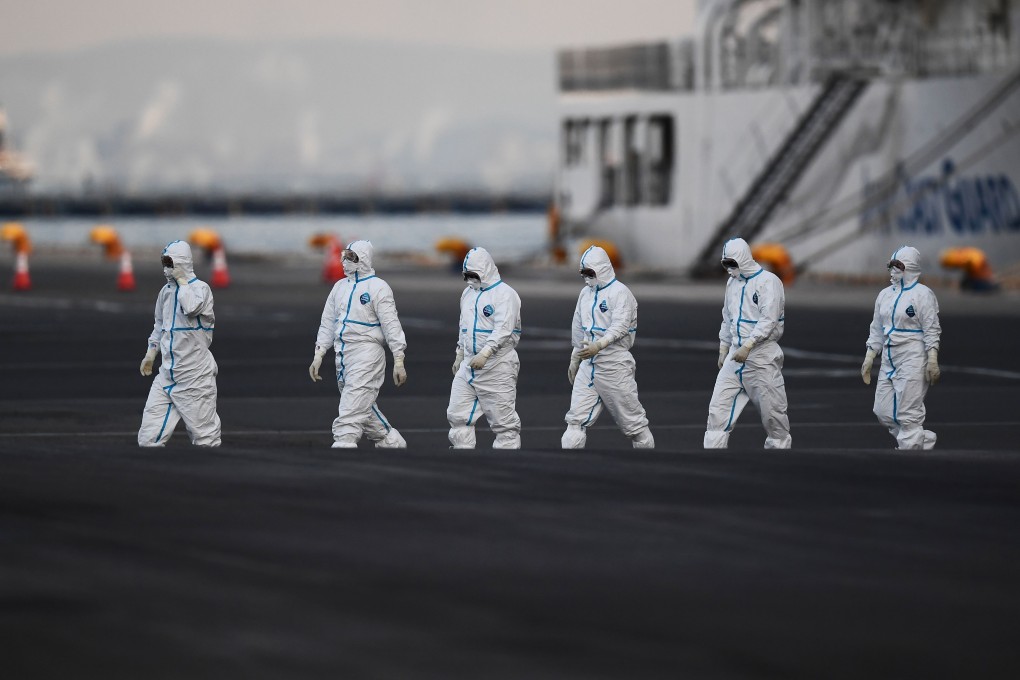Panic buying, mistrust and economic woes as Japan reels from coronavirus outbreak
- The country now has 163 confirmed cases of the virus, the highest total outside mainland China
- While authorities are urging calm amid rumours spreading on social media, fears of the virus are increasingly impacting daily life

For Fumio Takenaka, the final straw was watching the evening news on Sunday. The footage, from earlier in the day, showed the flashing blue lights of ambulances lined up on the dock where the Diamond Princess is moored in Yokohama.
Medical personnel in pale blue smocks, masks and visors carried equipment aboard the vessel, and the announcer said 64 of the 3,700 people aboard had been infected with the new coronavirus.
“I live in Yokohama and seeing this happening so close frightened me,” said Takenaka, a housewife who lives in the Yamate district of the city. “On Monday morning, first thing, I went to the shops and bought two big boxes of face masks and the largest bottle of hand sanitising liquid I could find.

That total included two Japanese citizens evacuated from the Chinese city of Wuhan, the epicentre of the outbreak, who had been diagnosed with the infection after initially testing negative, the ministry said.